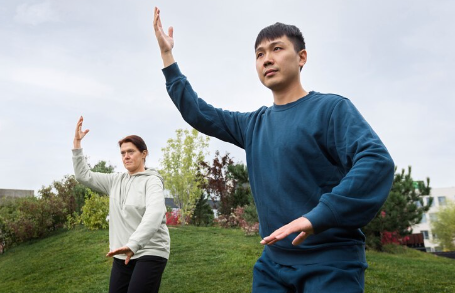In the vast and echoing halls of ancient Latin, a language that has shaped law, science, and philosophy, certain phrases carry a weight that transcends their simple grammatical structure. Among these, “Solo Et” stands as a profound and often misunderstood concept. At its most literal, it translates to “you alone and,” a phrase that seems incomplete yet is remarkably whole in its philosophical implication. It is not a statement of loneliness, but a declaration of primary agency. In a modern world characterized by constant connection, external validation, and collective opinion, the principle of Solo Et serves as a crucial anchor to the self. This article will unravel the intricate layers of this Latin phrase, exploring its grammatical roots, its Stoic philosophical underpinnings, and, most importantly, its powerful application as a mindset for cultivating unshakable self-reliance, profound inner strength, and authentic personal empowerment in the 21st century.
Table of Contents
ToggleDeconstructing the Grammar: The Nuance of “You Alone And”
To truly grasp the depth of “Solo Et,” one must first move beyond a superficial translation and understand the significance of its grammatical components. The word “solo” is not the common word for “alone.” It is the ablative case of the adjective “solus,” meaning “alone,” “only,” or “by oneself.” The choice of the ablative case is critically important. In Latin, the ablative case is used to express means, manner, accompaniment, or agency. Therefore, “solo” carries a more active and nuanced meaning than the nominative “solus.” It implies “by means of oneself,” “accompanied only by oneself,” or “through one’s own agency.” The conjunction “et” simply means “and.” However, its presence is transformative. It changes the phrase from a static description of a state (“you are alone”) into a dynamic proposition of potential (“you alone are the essential element, and…”). This “and” is an invitation; it is the space where action, creation, and life itself begin. It posits the individual as the fundamental and necessary component from which all else springs. This subtle grammatical distinction elevates Solo Et from a mere observation to a powerful principle of existence.
The Stoic Heart of Solo Et: The Foundation of Inner Fortitude
The philosophical power of Solo Et finds its most resonant expression in the teachings of Stoicism, an ancient school of philosophy that prized virtue, reason, and emotional resilience. The Stoic philosophers, from Epictetus to Marcus Aurelius, built their entire worldview on a simple but radical idea: the dichotomy of control. This principle asserts that the only thing truly within our power is our own mind—our judgments, our choices, our values, and our actions. Everything else—external events, the actions of others, our reputation, our wealth—is outside our direct control. The Solo Et mindset is the practical embodiment of this dichotomy. It is the conscious realization that you, alone and by yourself, are ultimately responsible for your inner world and your responses to the external world. Your character, your integrity, and your peace of mind are not products of circumstance but are built through your own internal work. This philosophy does not advocate for isolationism but for a fortified sense of self. It means deriving your validation from your own moral compass rather than from the fickle praise of the crowd, a concept powerfully echoed millennia later in Ralph Waldo Emerson’s essay “Self-Reliance.”
Solo Et in the Modern World: An Antidote to Digital Dependency
In our contemporary landscape of hyper-connectivity and digital noise, the principle of Solo Et has never been more relevant or more challenging to embody. We are constantly bombarded with external cues telling us who to be, what to buy, and how to think. Social media metrics—likes, shares, followers—have become insidious barometers of self-worth for many. This environment can systematically erode the very sense of self that Solo Et seeks to fortify. Embracing a Solo Et mindset in this context is not about rejecting community or becoming a hermit; it is about developing a conscious and critical filter. It is the practice of making choices based on your own core values and reasoned judgment rather than on algorithmic trends or fear of social exclusion. It is the ability to sit quietly with your own thoughts without needing digital distraction. It is about finding validation from within by setting personal standards and meeting them. In a professional setting, this translates to intellectual independence and the courage to innovate. In personal life, it is the foundation of healthy boundaries and relationships built on choice, not neediness. Solo Et is the mental muscle that allows you to engage with the world from a place of abundance and strength, rather than from insecurity and lack.
Cultivating the Solo Et Mindset: Practical Pathways to Empowerment
Understanding the theory of Solo Et is the first step; integrating it into the fabric of daily life is where its true power is unleashed. Cultivating this mindset is an active practice, a form of mental and emotional training that requires consistency and intention. One can begin by carving out dedicated time for solo reflection through practices like journaling, meditation, or simply taking long walks without headphones. These activities create a sacred space to hear your own voice and connect with your instincts, separate from the chorus of external opinions. Another critical practice is conducting regular “decision audits.” Before making a significant choice, pause to ask: “Am I doing this because it aligns with my authentic values and goals, or am I doing it to seek approval or avoid judgment from others?” This simple question is a powerful tool for realigning actions with your internal compass. Furthermore, intentionally undertaking challenges that can be accomplished independently—whether learning a new skill through self-study, completing a solo physical fitness goal, or managing a complex project on your own—builds tangible evidence of your own capability and resourcefulness. This reinforces the core Solo Et belief: that you are a competent and resilient agent in your own life, capable of being your own strongest ally.
Conclusion: The Enduring Resonance of an Ancient Truth
The journey into the meaning of Solo Et reveals that it is far more than an archaic Latin phrase; it is a timeless and universal principle of human empowerment. It serves as a potent reminder that while we exist within a complex web of social relationships and external circumstances, the epicenter of our power, our peace, and our purpose resides firmly within. By embracing the Solo Et mindset, we do not turn our back on the world, but rather we choose to engage with it from a position of authenticity and strength. We become less reactive to the chaos around us and more proactive in creating a life that is genuinely our own. It is the foundation upon which unshakable confidence is built and the source from which true independence flows. In the quiet, steadfast assurance of “you alone and,” we find the courage to define the terms of our own existence and add our unique “and” to the story of our lives.
FAQ Section
Q1: What is the direct English translation of “Solo Et”?
A: The most direct translation of the Latin phrase “Solo Et” is “you alone and.” However, this is a literal translation that misses the grammatical nuance. “Solo” is in the ablative case, better understood as “by means of oneself” or “accompanied only by oneself.” So, the phrase implies that the individual is the primary and essential agent, to which other elements are added.
Q2: Is Solo Et about being lonely?
A: Absolutely not. This is a critical distinction. Solo Et is not about the emotional state of loneliness or isolation. It is a philosophy of self-reliance and inner agency. It’s about cultivating a strong sense of self so that you can engage with others and the world from a place of wholeness and choice, rather than from neediness or dependency.
Q3: How is “Solo Et” different from just the word “Solus”?
A: “Solus” is a nominative adjective that simply describes a state of being: “alone,” “only,” or “lonely.” “Solo” is the ablative form, which is more active. It expresses means or agency—how something is done. Therefore, “Solo Et” shifts the focus from a passive state (“I am alone”) to an active capability (“I can do this by means of myself, and…”).
Q4: Isn’t this mindset selfish?
A: Quite the opposite. A healthy Solo Et mindset is the foundation of healthy relationships. When you are secure in yourself and not dependent on others for your validation or happiness, you can engage in relationships from a place of generosity and genuine desire, not need. This leads to more authentic and fulfilling connections with others, free from co-dependency.
Q5: How can I start practicing this in my daily life?
A: You can start with small, consistent practices:





